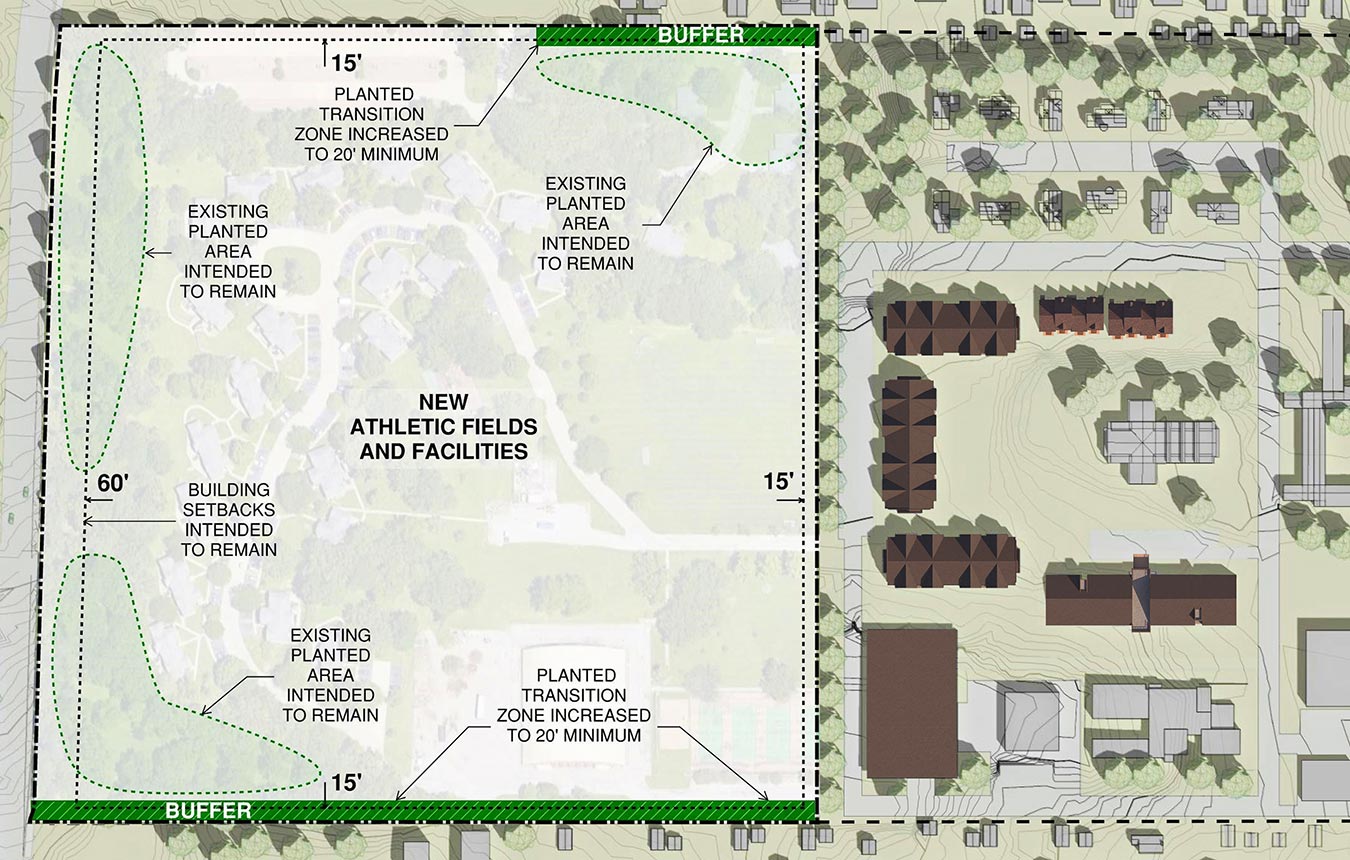
Campus Plan
Building for Community:
The Campus Plan for Concordia Seminary
With its Gothic architecture, stately trees and park-like setting, the Clayton, Mo., campus of Concordia Seminary has provided a gorgeous backdrop for its Gospel-centered graduate-level theological education since 1926. In fact, more than 13,000 workers – pastors, deaconesses, missionaries and other church leaders have been formed at the Seminary and sent out for the Lord’s harvest – a testament to God’s faithfulness.
The Seminary is truly a special place, so it must be tended to better serve the needs of students, faculty, staff and the congregations and ministries of The Lutheran Church—Missouri Synod. That is why the Board of Regents and Seminary leadership have created a plan to guide needed capital improvements to the campus, Building for Community: The Campus Plan for Concordia Seminary. By reinvesting in the central core of the campus, this plan wisely stewards the Seminary’s resources, embodies a commitment to robust campus community, and sets a course for the Seminary’s continued strength and stability for years to come.
“I have advocated for approaching our campus planning with an eye toward the centrality of the chapel and the cultivation of rich community life.”
President Dr. Thomas J. Egger
Proposed Campus Plan

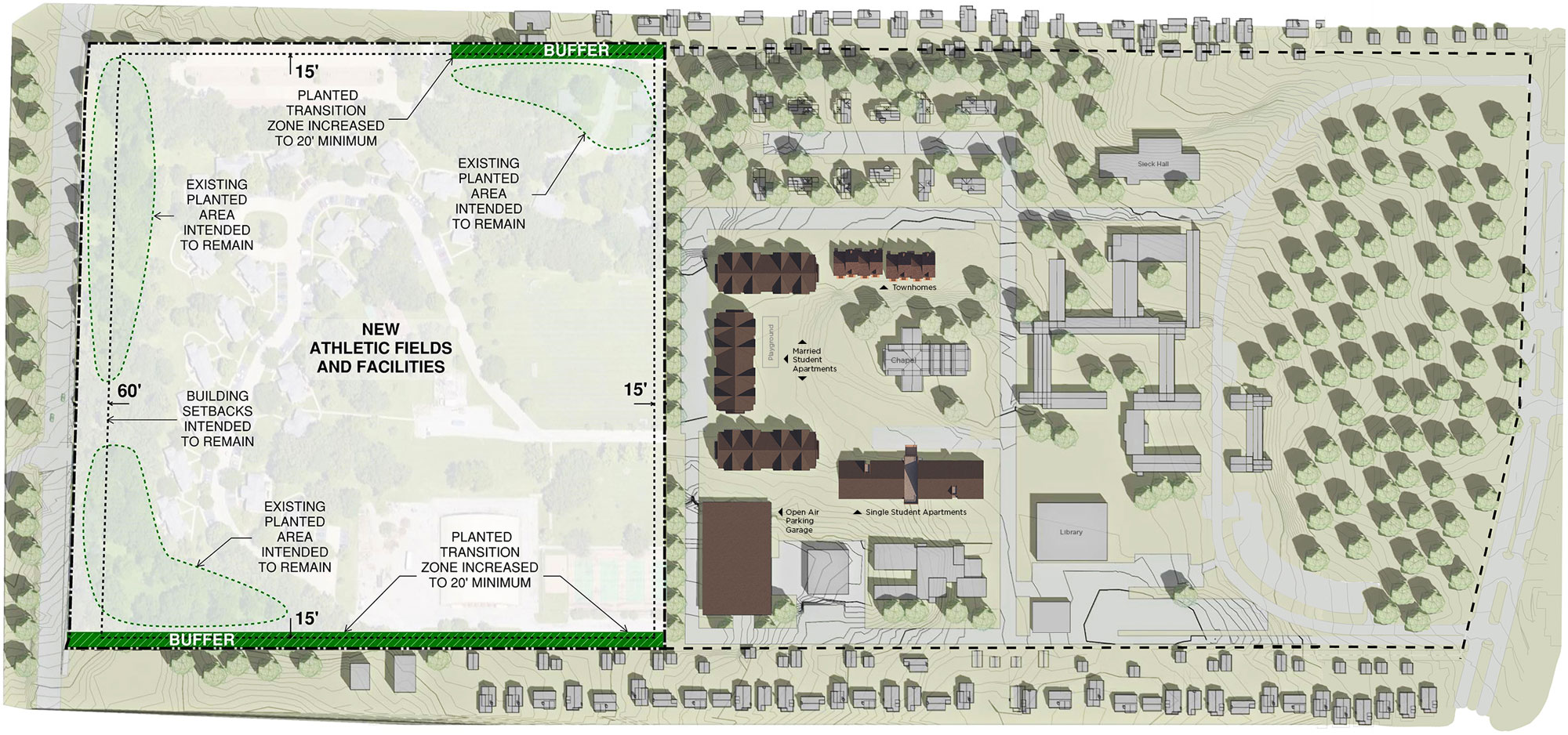
Campus Plan Updates
Goals
- Preserve the historic core of campus and center campus life and activities around the chapel and the main campus corridor
- Improve housing and athletic facilities to enhance recruitment, enrich the whole-person formational experience of students and foster rich community life.
- Create a welcoming gateway to campus to foster greater connections with the surrounding community and the broader church and world
- Address existing facility needs and leverage noncore assets in an ongoing effort to create a sustainably funded institution
Projects
Student housing
Central to the campus plan is a strong desire to concentrate student housing and student life nearer to the historic core of campus. The current married student housing is not only at the end of its life cycle, but it also has deteriorated more quickly than expected. Current married student and family housing will be replaced with new apartments and townhomes surrounding the Chapel of St. Timothy and St. Titus, which stands at the heart of campus. New single student efficiency apartments also will be built close to the married student housing units. As a result of these improvements, both the number and variety of housing units will be increased.
Athletic facilities
The Seminary has entered into an 80-year agreement with neighboring Washington University, which is exploring the development of 27.5 acres on the western side of campus into new auxiliary athletic facilities, such as an indoor basketball court and soccer practice fields, among other possibilities. The Seminary community will have access to these facilities, and there will be seating for spectators.
Parking garage
An open-air parking structure, to serve the residents of the Seminary’s new student housing, will be constructed across from the Chapel of St. Timothy and St. Titus, near the new housing units.
Welcome Center
A future phase of the Campus Plan calls for a new welcome center and guest lodging. A campus Welcome Center serves many functions, but most importantly, as a signature location where visitors are welcomed to campus and directed to their location.
Phases
Phase 1: Construction of three 24-unit apartment buildings and nine townhomes for married students near the Chapel of St. Timothy and St. Titus. Additionally, an open-air parking structure will be constructed to the southwest of the chapel.
Phase 2: Refurbishment of the historic Craemer, Graebner and Lange halls – wings of the Seminary’s historic campus buildings facing Chapel Plaza – which are currently vacant and unused.
Phase 3: Construction of a 75-unit apartment building for single students close to the chapel.
Future: Plans for a new welcome center will be finalized in a future phase.
Architectural renderings
New student housing
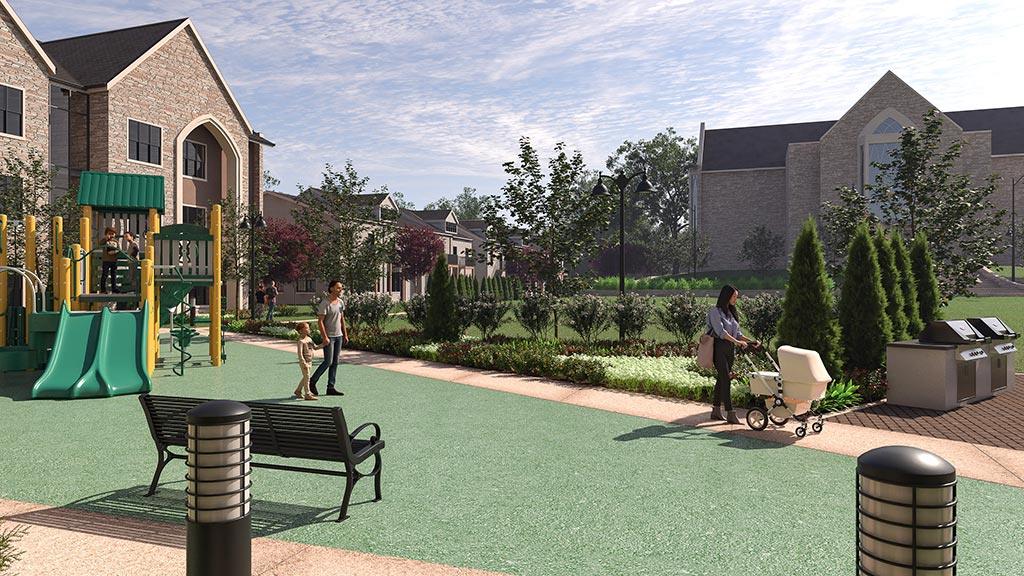
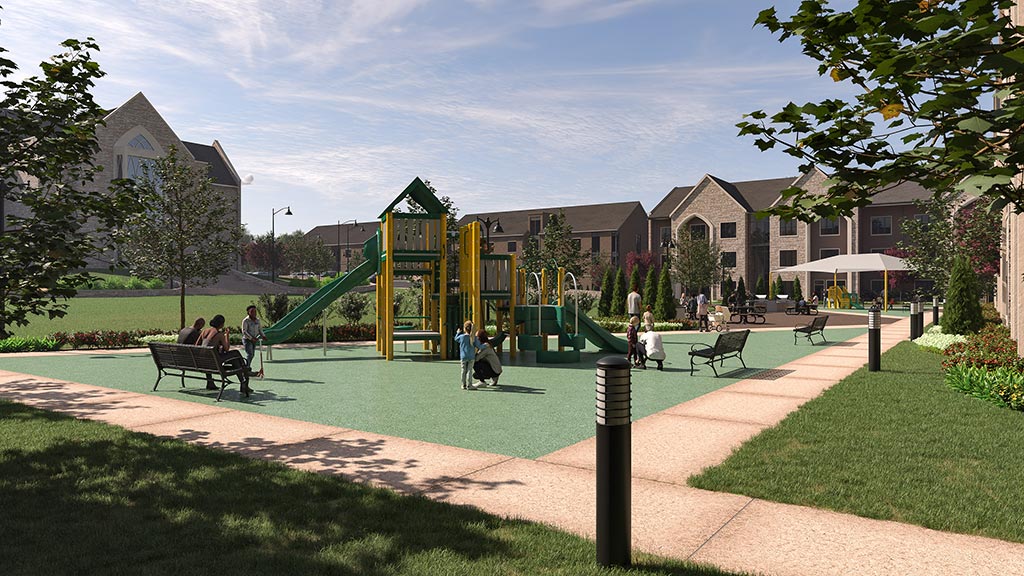
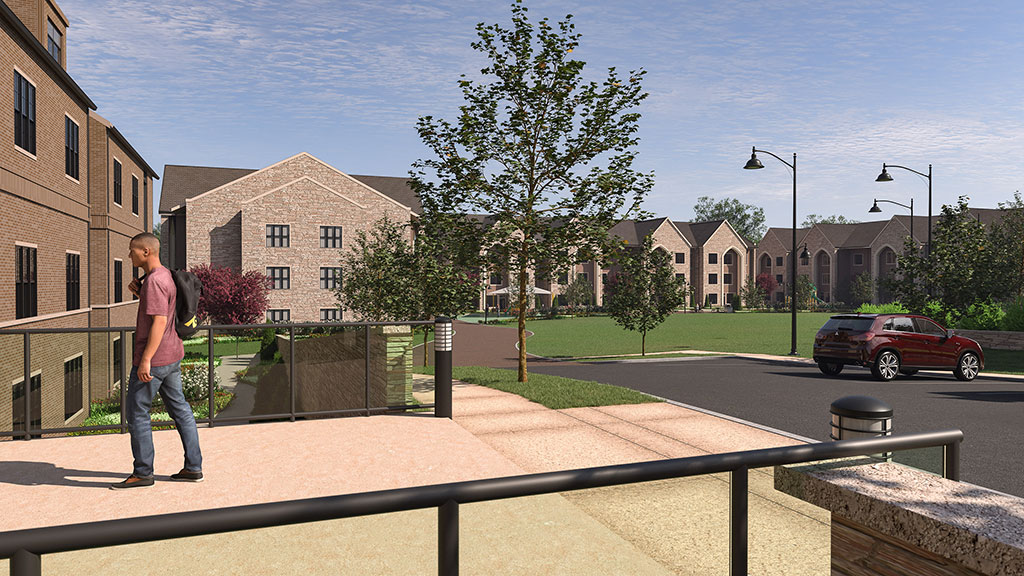
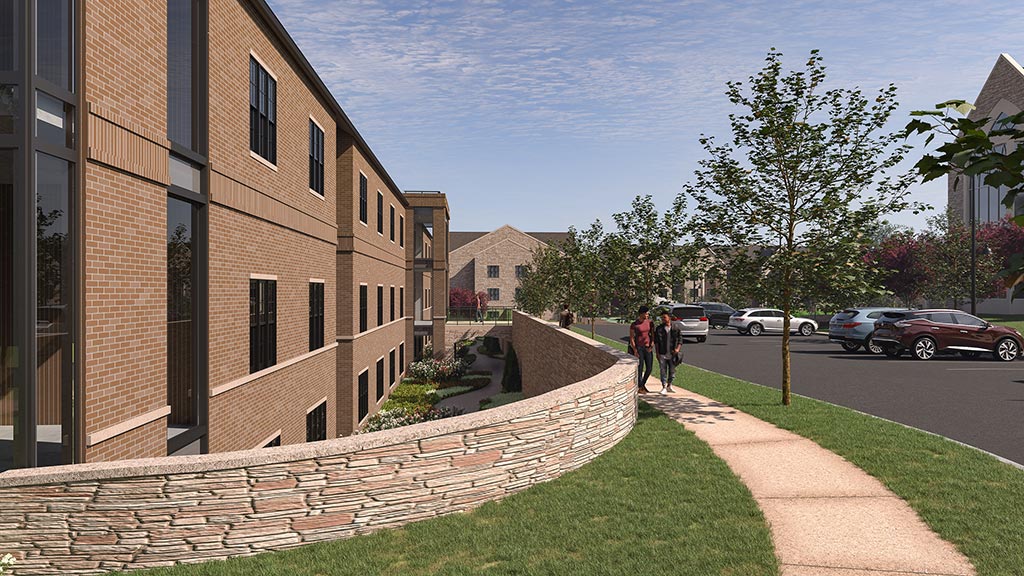
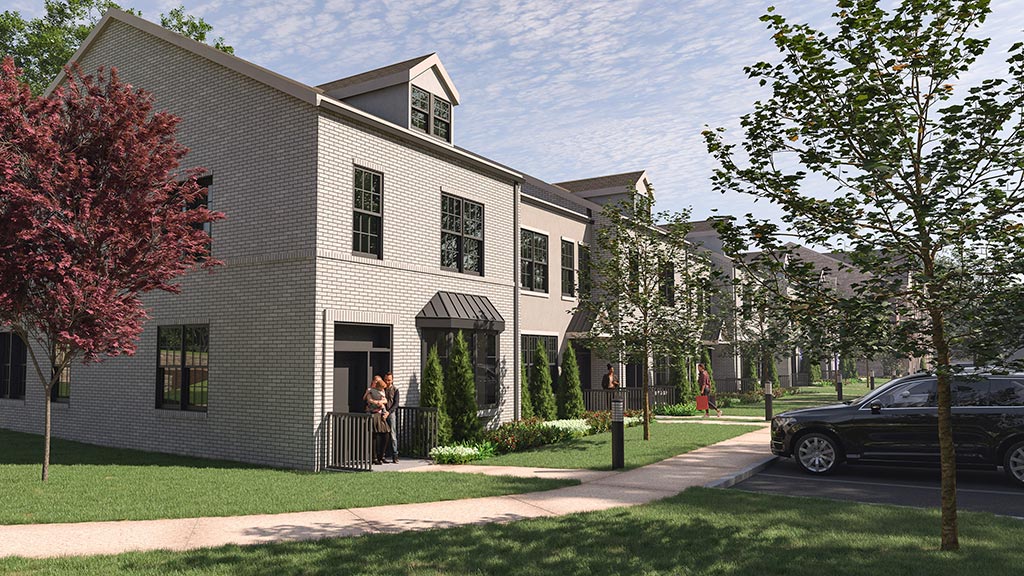
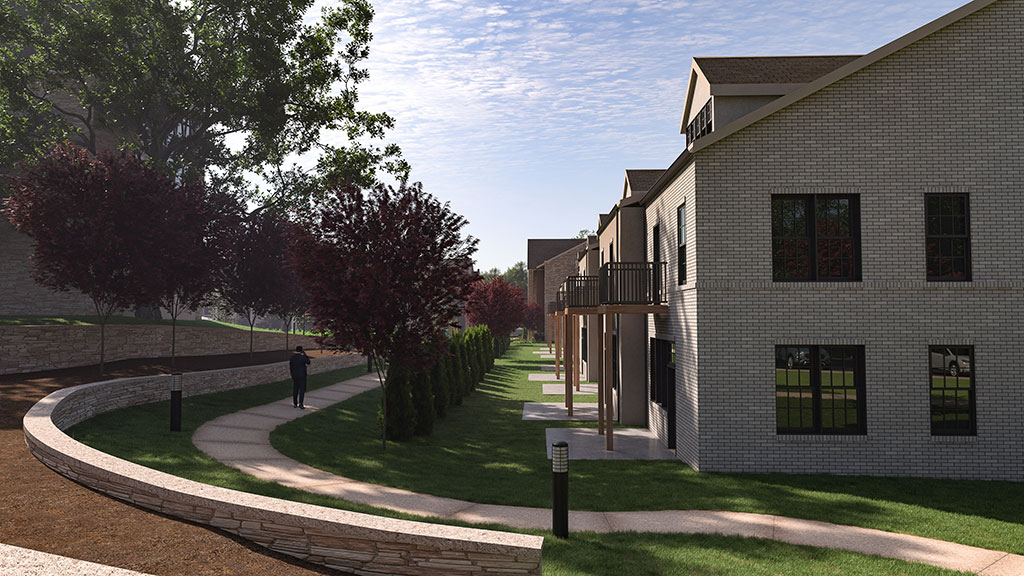
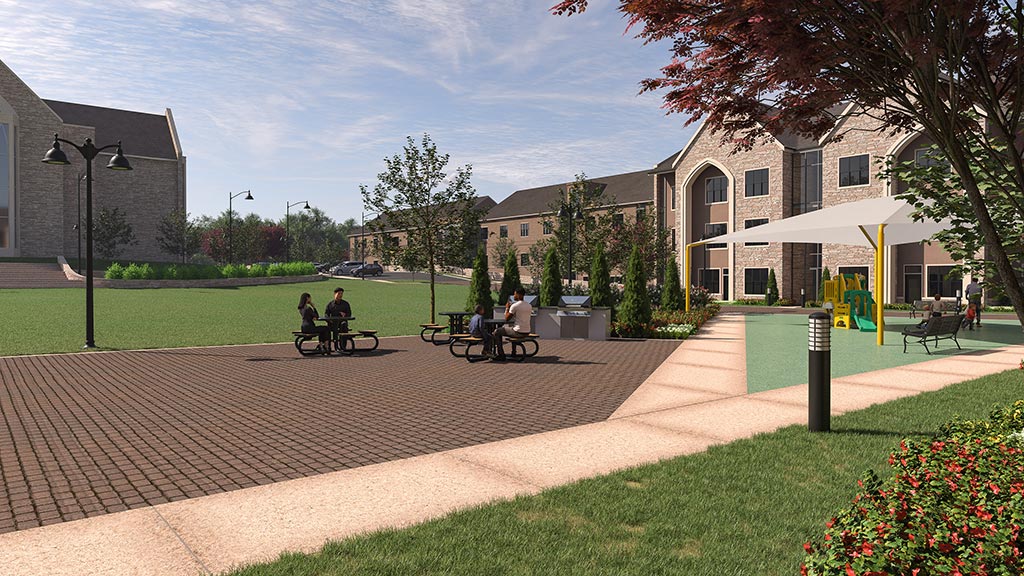
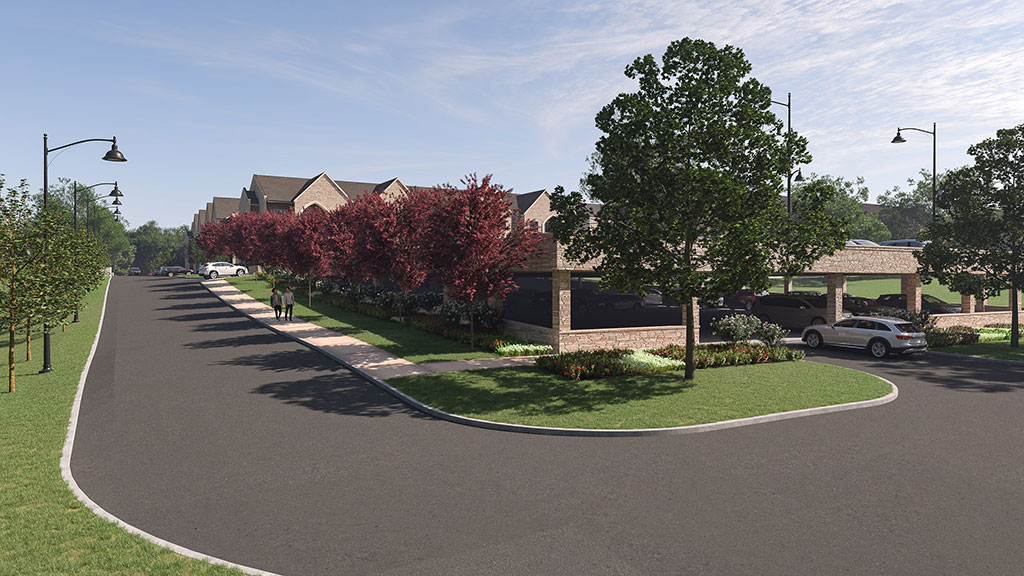
Frequently Asked Questions (FAQs)
Why are we making renovations on our campus?
We are making renovations to our campus to better serve the needs of our students, faculty and staff, and ultimately the congregations and ministries of The Lutheran Church—Missouri Synod (LCMS). The renovations will allow the Seminary to:
- Focus the center of activity of the Seminary around the chapel and historic core of campus
- Provide new, modern, up-to-date housing options for our students
- Improve athletic opportunities for students, faculty and staff
- Continue reinvestment in the core of the campus, building on the recent renovations of the Benidt Center, Kristine Kay Hasse Memorial Library and the historic faculty homes
- Leverage underutilized assets to effectively steward the resources of this venerable campus
- Continue our ongoing, successful efforts to seek and secure sustainable funding sources for Seminary operations to ensure the financial position of the institution for generations to come
Who has approved or must approve the Campus Plan?
The Seminary’s administrative team and Board of Regents created and approved the Campus Plan to guide needed capital improvements to the campus. The plan, or portions thereof, also are pending before The Lutheran Church—Missouri Synod Board of Directors, the Washington University Board of Trustees and the City of Clayton.
What is the timeline for the three phases of the plan and completion of the projects?
All phases of the plan are dependent on necessary approvals, the securing of funding and the completion of the prior phase.
Phase 1 of the plan, which includes the construction of new married student housing, will begin as soon as the outstanding approvals are received. Phase 1 construction is estimated to take 18 months.
Phase 2, which includes the refurbishment for administrative use of the historic Craemer, Graebner and Lange halls, which are currently vacant and unused, will begin after the completion of Phase 1.
Phase 3, which includes the construction of a 75-unit apartment building for single students close to the chapel, will begin after Phase 2 is completed.
Phases 2 and 3 may run concurrently with the prior phase if funding has been secured, but there are currently not any estimates of the actual construction periods.
The plans for a new welcome center will be finalized in a future phase.
Which areas of campus will Washington University be using and improving?
The Seminary has entered into an 80-year agreement with Washington University, which is exploring the development of 27.5 acres on the western side of campus into new auxiliary athletic facilities, such as an indoor basketball court and soccer practice fields, among other possibilities. The Seminary community will have access to these facilities.
Are we selling or leasing the Seminary property to Washington University?
We are deeding Washington University the prescribed acreage on the western part of the campus for 80 years. At the end of this period, full ownership reverts to the Seminary.
What is the cost of the projects?
The estimated cost for the first three phases is expected to be $45 million. Cost estimates for any additional phases have yet to be determined.
How will the Campus Plan be funded?
Funding for the Campus Plan projects will be included in the Seminary’s next comprehensive fundraising campaign and by earnings from the agreement with Washington University.
What will the western area of campus known as the Woods, where married student housing is located, look like under this plan?
After the new housing is constructed, which will be located closer to the chapel and center of campus, the existing married student apartments, known as the Woods, and the Pederson Field House will be torn down. That land then will be redeveloped into athletic fields and a fitness center for our shared use with Washington University.
Which buildings will be demolished?
In a phased approach, during which no students will be displaced, the following buildings will be torn down:
All the units of the Woods married student housing will be demolished, as well as the 1950s ranch-style faculty homes at the end of McCall Terrace and the three unoccupied, deteriorating homes directly north of the chapel – all to make way for new construction.
Pederson Field House will be removed – a new fitness center, that will include a full-size basketball court with spectator seating, will be constructed on the westernmost end of the campus, which students, faculty and staff can access.
Loeber Hall and the Student Services Building will be demolished to make way for the new apartment building for single students.
Will the new student housing be affordable?
Yes. The Seminary will continue to provide affordable student housing and rents benchmarked with current rental fees.
Will Seminary students have access to the new athletic facilities?
Yes. Concordia Seminary’s athletic teams and individual students, faculty and staff will have access to the new athletic facilities, which will include spectator seating.
What will happen to the existing single student dormitories?
Single students living on campus will be relocated from the 1920s-constructed Founders Hall — comprising Buenger, Brohm and Fuerbringer (Isolation) dormitories — into modern, individual, efficiency apartments that will stand on the footprint of present-day Loeber Hall and will be located closer to the campus core and the chapel. The older dormitories may be remodeled and used for other campus purposes.
Where will the business offices located in Loeber Hall and the Student Services Building be housed once those buildings are demolished?
Staff with offices currently located in Loeber Hall or the Student Services Building will be relocated into the historic buildings in the center of campus into currently unused wings whose interiors will be fully renovated.
Will there be street parking available for married students and single student housing units?
An open-air parking structure will be constructed on campus to the southwest of the chapel. Some street parking also will be available.
Will the playground, located near the Woods apartments, be replaced?
Yes. A new playground with play structures is planned near the new married student apartments.
How will the project affect the KFUO Radio tower and KFUO listeners?
To accommodate the plans for the westernmost edge of the Seminary’s campus, the KFUO tower and transmitter will be removed. The LCMS has purchased replacement transmission equipment at another location for KFUO and the station will transition to it by the end of 2023. Listeners can be assured that the transition will be seamless and broadcasting will not be interrupted. In fact, KFUO, which is now streamed live at kfuo.org and continues to broadcast from AM 850 in St. Louis, will become more widely available with the addition of FM broadcast capabilities. Please contact KFUO directly for more details.
How will the construction affect the local neighborhoods near campus?
Concordia Seminary, with its park-like setting, is nestled in the heart of the Clayton, Mo., community. Our campus neighbors enjoy and will continue to be welcome on our beautiful campus grounds. This access will continue to be available to our neighbors, although certain routes may be temporarily unavailable during some phases of construction.
How will the new projects affect the current roads through campus?
Some interior roads will be routed to the perimeter of the campus, allowing for the development of a green commons space between the new housing and the chapel that will be traffic-free and safer for children and pedestrians. Certain roads may be inaccessible at times due to construction – ample notice will be provided. An additional entrance to the athletic facilities will be added as part of the updates to the westernmost end of the campus. This entrance will be off Big Bend Boulevard.
How will these projects affect Concordia Historical Institute (CHI)?
The portion of our property where CHI is located is not directly affected by these projects.
How will these projects affect the Loeber Hall offices of Lutheran Women in Mission (LWML)?
As buildings in the historic core are planned for renovation, LWML will be invited and encouraged to participate. The LWML has been a tremendous blessing to the entire Seminary community, and we pray they will continue to have their offices on campus.
How will these projects affect the arrangements for LCMS missionary housing on campus?
Our current arrangement with the LCMS International Center to make short-term housing available for missionaries will continue with the newly built housing. The Seminary and the LCMS have agreed to identify specific apartments or townhomes where missionaries will be able to live on campus. Bringing these missionaries into a community of theological education is beneficial to all.
